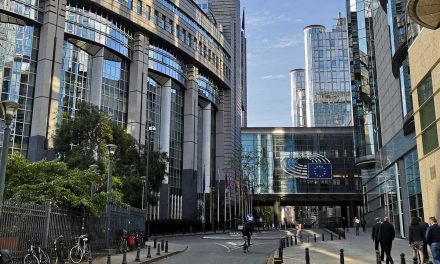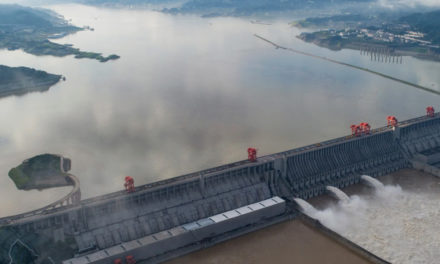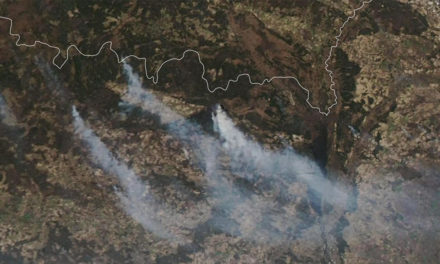As of Tuesday, the second day of protests, 122 people had been arrested in the British capital, most for public order offences, but five people were held on suspicion of criminal damage to the Shell building near the River Thames. Activists admitting smashing one of the revolving doors at the building’s entrance and causing more than £6,000 worth of damage.
Mass Disruption and Civil Disobedience
Hundreds of protesters shut Waterloo Bridge and were actively hindering police efforts to try and move them on, including four die-hard activists who chained and glued themselves to the bottom of a lorry that was parked on the bridge. The normally gridlocked Oxford Circus was closed to traffic and instead hosted a collection of tents, a small pink yacht on a trailer and food stalls offering free porridge. A few children were playing hopscotch, according to a BBC reporter on the scene. Maximum disruption is what activists are aiming for and Extinction Rebellion has said it is trying to get as many people arrested as possible. Roger Hallam, one of the group’s founders, has said that the only way to induce social change is mass participation and civil disobedience. But the organisers also circulated legal advice to people planning to demonstrate asking them to treat the public with respect and not to use drugs and alcohol.
One of the protestors, Rowan Mcloughlin, a 47-year old teacher said these protests were more important than the pro and anti-Brexit protests London has seen in recent months.
“In Europe, out of Europe, it makes no difference if we have no liveable habitat. We’re just going to get bigger and more annoying until the government speaks to us,” he told Reuters.
But critics say that the protesters cause unnecessary disruption and waste police time when forces are already overstretched with knife crime in London at a level never seen before with 135 people killed in knife violence last year.]]>
But the organisers also circulated legal advice to people planning to demonstrate asking them to treat the public with respect and not to use drugs and alcohol.
One of the protestors, Rowan Mcloughlin, a 47-year old teacher said these protests were more important than the pro and anti-Brexit protests London has seen in recent months.
“In Europe, out of Europe, it makes no difference if we have no liveable habitat. We’re just going to get bigger and more annoying until the government speaks to us,” he told Reuters.
But critics say that the protesters cause unnecessary disruption and waste police time when forces are already overstretched with knife crime in London at a level never seen before with 135 people killed in knife violence last year.]]>
- Why is California So at Risk from Wildfires? - 13th November 2019
- Carbon Offsetting is Growing but Does it Make a Difference? - 11th November 2019
- Three Confirmed Dead as Australia Prepares for “Catastrophic” Bushfires - 11th November 2019






